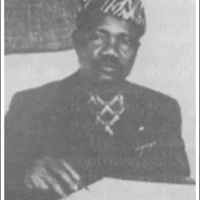An article by an American reporter alleged that the U.S. embassy in Jakarta played a role in the Indonesian massacres of 1965-1966 by supplying a list of known communists to Major General Suharto (seen right), whose forces then hunted them down and killed them. The violence began when Communist forces killed six of Indonesia’s senior… Read More "Naming Names: U.S. Embassy Jakarta and Indonesian Purges 1965-1966"
Beijing Spring and the Lead-up to Tiananmen Square
The iconic image of the Tiananmen Square demonstrations and brutal government crackdown on the peaceful demonstrators is that of the “Tank Man,” the unarmed citizen who, carrying nothing but shopping bags, peacefully blocked the path of tanks sent by the Chinese government to assert control in the days after the crackdown. While the image may lead… Read More "Beijing Spring and the Lead-up to Tiananmen Square"
Throughout the 1970s, trouble was brewing in Chad. President François (N’Garta) Tombalbaye was the first president of Chad following its independence from France in 1960. His authoritarian regime became increasingly distrustful of and alienated from Chad’s military and Tombalbaye had jailed several prominent commanders. An insurgency in the north led by the Libyan-armed FROLINAT [National… Read More "A Front Row Seat to the 1975 Coup d’Etat in Chad"
Death of an AUB President and Father of a Future NBA Coach
He was a brilliant scholar who focused on the Middle East and whose books were widely read by Arabists. His son Steve would later play for the NBA champion Chicago Bulls and then become coach of the Golden State Warriors and lead them to a championship in 2015 and break the record for most wins in… Read More "Death of an AUB President and Father of a Future NBA Coach"
I, Spy? Diplomatic Adventures during Soviet-American Détente
Among the challenges of serving as a U.S. diplomat in the USSR during the Cold War years of 1945 to 1991 were the certain knowledge that one’s words and actions were being monitored and reported back to the host – and often hostile – government. Intelligence gathering was carried out by both sides to learn… Read More "I, Spy? Diplomatic Adventures during Soviet-American Détente "
“Austria is Free!” Part II — Negotiating with the Soviets
For several years since the end of World War II, the U.S., UK and France had done what they could to support war-torn Austria economically and promote fledgling democratic institutions. Efforts to negotiate a treaty which would grant Austria its full independence and allow the withdrawal of the Four Powers were continuously blocked by the… Read More "“Austria is Free!” Part II — Negotiating with the Soviets"
“Austria is Free!” Post-War Vienna Escapes the Soviet Bloc
May 15th, 1955, was a momentous occasion for a war-battered Europe, and for the national history of Austria as the Foreign Ministers representing the Occupying Powers gathered to sign the Austrian Independence Treaty. Leopold Figl, the former Chancellor and then the Foreign Minister, famously appeared on the balcony of Vienna’s Belvedere Palace (now home to a dazzling… Read More "“Austria is Free!” Post-War Vienna Escapes the Soviet Bloc"
The Saur Revolution: Prelude to the Soviet Invasion of Afghanistan
The government of Afghan President Mohammed Daoud Khan came to a violent end in what was called the Saur Revolution when insurgent troops led by the People’s Democratic Party of Afghanistan [PDPA] stormed his Kabul palace on April 27, 1978. Daoud had taken power five years before by overthrowing and exiling his cousin, King Zahir… Read More "The Saur Revolution: Prelude to the Soviet Invasion of Afghanistan"
How a Former Secretary of State Won an Ancient Temple for Cambodia
Like many nations, Thailand and Cambodia share the colonial legacy of an ambiguous border which has led to violent conflict. Ownership of the ancient Preah Vihear Temple complex has been the subject of rancorous debate within Cambodia and Thailand since the late 19th century. In 1954, Thai troops occupied and claimed the historic site. The two… Read More "How a Former Secretary of State Won an Ancient Temple for Cambodia"
Towering Infernos – The Kuwait Oil Fires
A 2010 Time Magazine article rated it as the third worst environmental catastrophe in history, right behind Chernobyl and Bhopal. As Operation Desert Storm drew to a close, with Kuwait liberated and the Iraqi Army all but destroyed, Saddam Hussein would not concede defeat. Like a cornered rat, he inflicted one more blow on Kuwait’s ecology and… Read More "Towering Infernos – The Kuwait Oil Fires"

